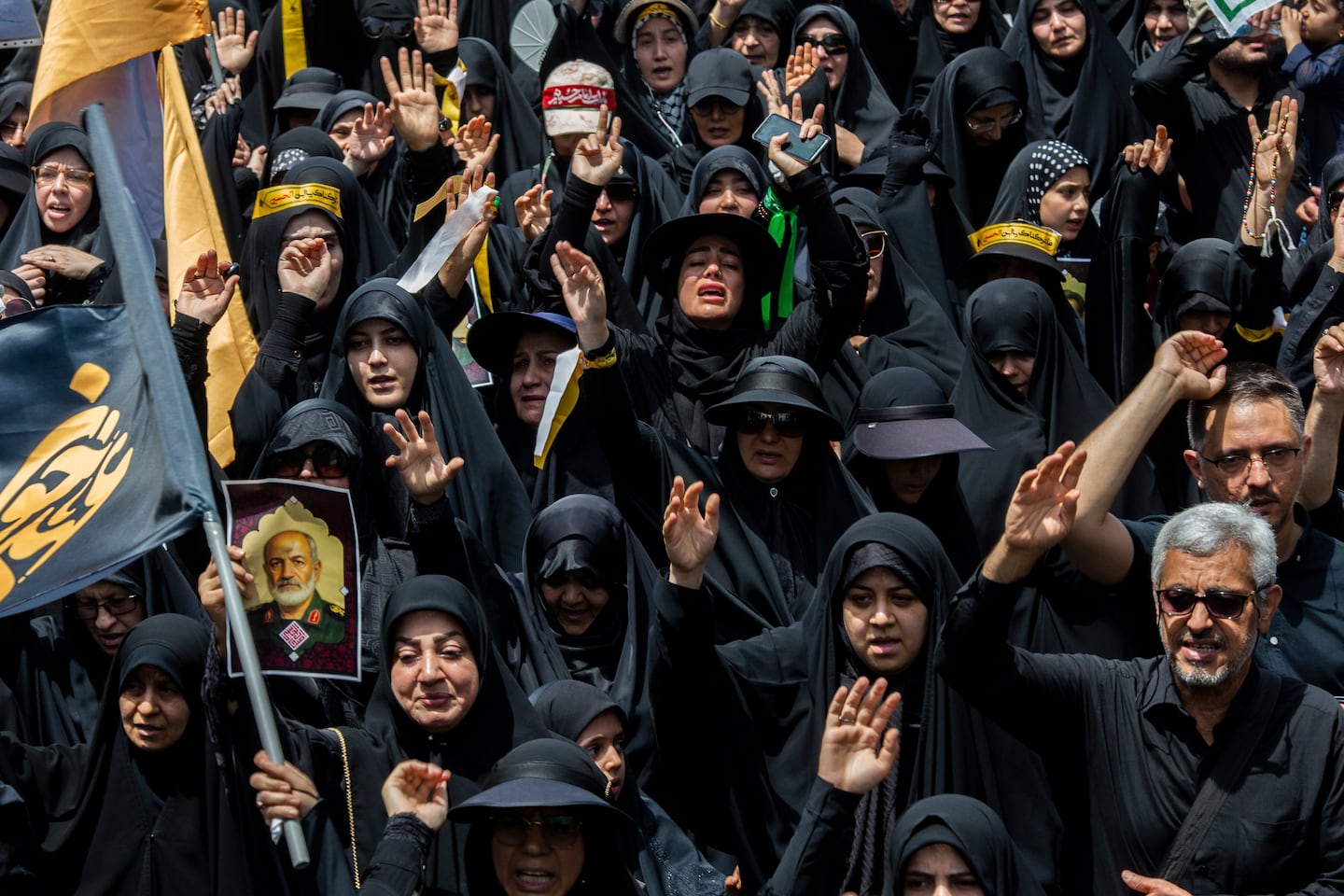But you’d be wrong.
Bayat, a senior fellow at the Center for Middle East and Global Order in Berlin, believes the attacks may actually have set back the pro-democracy movement in Iran. He fears that the Iranian government has used the 12-day war with Israel to crack down on dissent, and as a result many Iranians feel compelled to stand with the unpopular government.
“I am afraid that the war has made the situation of Iranian opposition, which has really big potential support in Iran, worse,” he told me in a recent interview.
Other opposition figures, like Reza Pahlavi, the exiled son of the former shah of Iran, have supported the Israeli-US attack and called for more aggressive external pressure to bring down the weakened regime.
But Bayat represents an important segment of the opposition movement that believes no revolt in Iran can succeed if it appears to be aligned with Israel or the United States, both distrusted by many Iranians, including some opponents of the regime. As one exiled analyst put it, “You cannot try to save your homeland by standing behind enemy tanks.”
Despite his dismay with the attacks, Bayat — an expert on Iran’s nuclear program — believes that the Trump and Netanyahu governments are mostly right that Iran’s nuclear weapons infrastructure has largely been destroyed.
“No centrifuge can work right now in Natanz or Fordow,” he said of the machines that turn uranium into the enriched fuel needed for a weapon. “The shockwaves alone would have put them out of commission, and without electricity the centrifuge will be also damaged. Nothing runs.” He added that he believes a third facility at Isfahan has been effectively destroyed and that the entire program has been set back by several years at least.
That assessment, informed by his vast experience and contacts, is corroborated by satellite imagery and international reporting. Fordow, Iran’s most heavily fortified enrichment facility, was struck by US bunker-busters, leaving six large craters and damaging tunnel entrances and access roads. The Israel Atomic Energy Commission has called Fordow “inoperable,” and the International Atomic Energy Agency’s Rafael Grossi has said the centrifuges are “no longer operational.” Natanz, the largest enrichment site, and Isfahan, home to a crucial uranium conversion plant, suffered similar devastation, with ground-penetrating munitions collapsing tunnels and demolishing key infrastructure.
Bayat notes that although Iran could quickly enrich its stockpile of 60 percent enriched uranium — which many experts believe it still has — to weapons-grade purity of 90 percent, it would still need to take additional steps to build a bomb. Turning even highly enriched uranium gas into bomb-ready metal demands complex metallurgical and chemical processes.
“Afterward, the uranium must be shaped carefully to avoid accidental detonation, and sophisticated trigger systems — both conventional explosives and a nuclear neutron source — must be developed and precisely integrated. Finally, the assembled device would need to be tested and made deliverable,” he explains.
Yet for all its successes, the attack wasn’t needed, he asserts. He is convinced that Iran’s nuclear program was really all about deterrence: That is, the regime believed the mere threat that it could acquire a nuclear weapon would prevent Israel, the United States, or any other country from trying to overthrow it. He is convinced that the regime would have been willing to negotiate a deal to stop, or at least suspend, its nuclear program in exchange for the end of crippling economic sanctions.
“I am convinced that the Islamic Republic didn’t want to make a bomb in order to attack somewhere,” he told me. “Even if they had a bomb, the regime is not suicidal. They want to stay in power and enjoy the wealth they daily steal. They know that if they attack Israel via nuclear bomb, Israel has the capacity to strike back.”
He is particularly concerned that Israel might still attempt to overthrow the regime by assassinating Ayatollah Ali Khamenei, the nation’s supreme leader, and his top deputies. Israel, which has hinted at that possibility, has already succeeded over the past year in killing many of the country’s top military commanders, including Major General Hossein Salami, commander-in-chief of the Islamic Revolutionary Guard Corps, and Major General Mohammad Bagheri, chief of staff of Iran’s armed forces.
The only way to displace the regime, Bayat argues, is for “Iranians from within” to stand up and bring about a peaceful transition. “The recent history has demonstrated that with bombs and destruction you cannot introduce freedom, democracy, and prosperity. I think there is a good chance for the Iranian citizens to overcome the despotic clerical regime in the coming times.”
“The only viable path forward is negotiation with the Trump administration — and ideally, direct talks with Israel,” he said. “Iran should renounce uranium enrichment, as it serves no real purpose and there are no nuclear weapons in the country, making ‘denuclearization’ a misnomer.” He contends that ending the enrichment program should be easier now because enrichment activities have been badly damaged and all but halted. Permanently ceasing the program could pave the way for sanctions relief, which the regime badly needs to repair Iran’s sickly economy. “Of course, such policy has to be accompanied with the recognition of Israel,” Bayat added.
His faith that those negotiations will happen were shaken by recent remarks from the Iranian foreign minister that the United States must compensate Iran for its losses in the 12-day war before it resumes negotiations on a new nuclear deal. And if Iran chooses to resume enrichment — perhaps in greater secrecy than before — “I do not see a chance for an agreement,” Bayat said.
“I hope that, as usual, there is a difference between the public statements of the regime and its real handling of issues,” he said.
